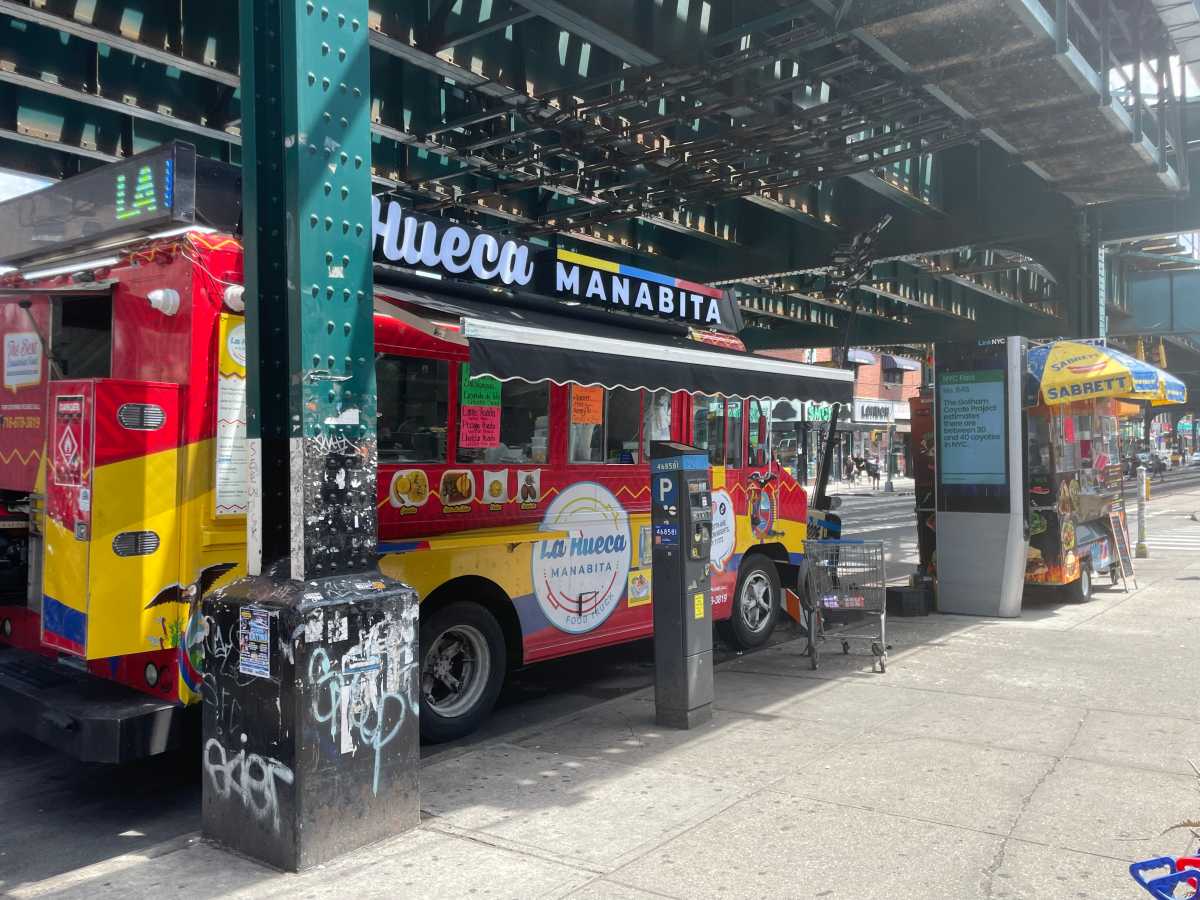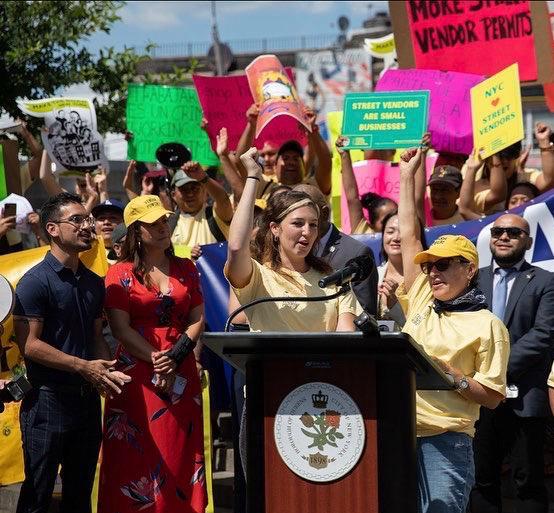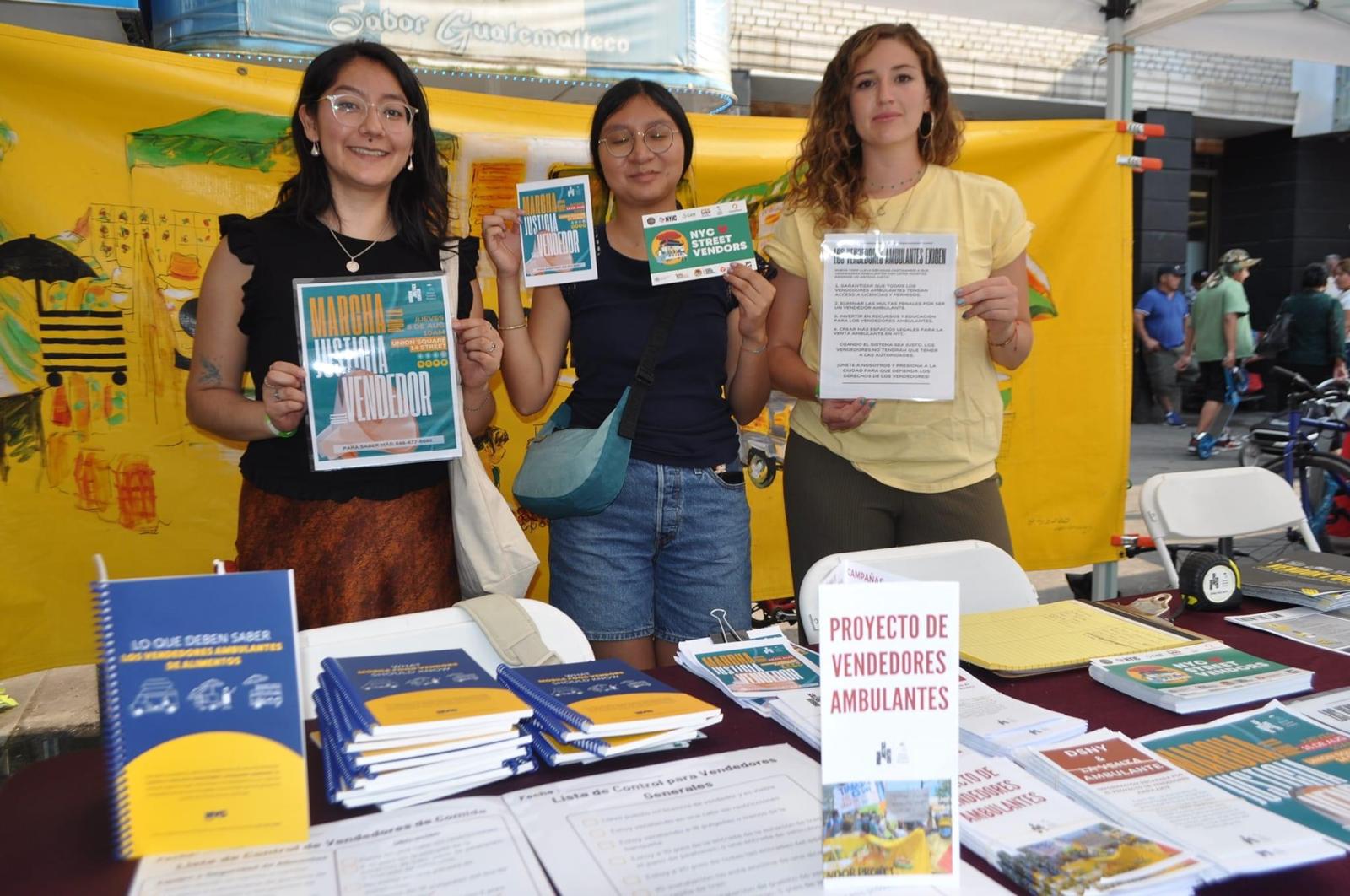
From Jackson Heights, to Elmhurst and Corona in Queens, a variety of Latin food vendors lay along Roosevelt Avenue.
Photo by Jimmy Robles
Search our comprehensive guide to things to do in Queens for more local events — or submit your own!
Queens has the second-highest share of street vendors in New York City, behind Manhattan. About one-third of the city’s 23,000 street vendors are located in the communities of Jackson Heights, Corona and Flushing. A significant amount of this population also pertains to Elmhurst, where a quarter of street vendors operate.
The vendors have found economic stability in these neighborhoods, where their services have a high demand among a diverse demographic.
 Halal food carts and fruit stands have found their base in Jackson Heights. Photo by Jimmy Robles
Halal food carts and fruit stands have found their base in Jackson Heights. Photo by Jimmy Robles
“Street vending is a huge part of our identity as a city,” said Carina Kaufman-Gutierrez, an Elmhurst resident and Deputy Director of the Street Vendor Project. “Through cuisine, through what people are able to meet and discover on the street, that are brought to life by vendors. It’s such a huge part of who we are as New York, and all of what we represent. The flavors, the visual identity of street vending shapes who we are as a city.”
As street vendors play a significant role in these communities, the recent passing of Intro 47-B by Council Member Shekar Krishnan of District 25 in Queens proved to be crucial. Although the bill removed all criminal misdemeanor charges as a penalty, unlicensed and unpermitted vendors may still face criminal violations.
As it stands, about 75% of the city’s street vendors currently operate without a license or a permit. However, even licensed and permitted vendors previously faced consequences from the city’s broken street vending system.
“What used to happen,” said Kaufman-Gutierrez. “Is that vendors, even if they are permitted, licensed and have everything in order. They could still receive a criminal ticket. Have to spend a whole day in criminal court. They lose a whole day of business. And feel like they are criminals for very small violations.”
 As the Deputy Director of the Street Vendor Project, Carina Kaufman-Gutierrez has advocated for the Street Vendor Reform package. Photo by Corey Torpie
As the Deputy Director of the Street Vendor Project, Carina Kaufman-Gutierrez has advocated for the Street Vendor Reform package. Photo by Corey Torpie
The Deputy Director referred to street vendors forgetting to have their license around their neck and placed inside their bag instead. Such a violation often led to a criminal summons, which then required a criminal court appearance. It is now a matter that will go through the city’s Office of Administrative Trials and Hearings court. Kaufman-Gutierrez emphasized that is “more in line” with how other small businesses are regulated in New York City.
She also pointed out to moments where the NYPD would write tickets incorrectly, as they had a misunderstanding of the street vending laws. This often resulted in a street vendor “wasting an entire day,” only to have the ticket dismissed by a judge.
“Street vending never should have been treated as a crime,” said Kaufman-Gutierrez. “It never has been a crime. It is dignified, honorable work. And treating street vendors as criminals is antithetical to who we are as a city.”
The street vendor advocate described Intro 47-B as a “big step forward,” but expressed concern for unlicensed vendors, who may still face criminal and immigration consequences. She argued that it is essential to pass Intro 431 of the Street Vendor Reform package, which would grant access to licenses and permits for all vendors.
After a City Council hearing on the reform took place in May, the City Council currently has five stated meetings remaining within the legislative session to vote on the legislation.
“It’s actually very difficult for just a regular person, let alone a vendor in the street,” said Kaufman-Gutierrez. “Who’s trying to run a business, while also looking over their shoulder, to see what type of enforcement might be coming. To distinguish between, ‘is it the Department of Sanitation? Is it NYPD? Or is it ICE?’”
 Carina Kaufman-Gutierrez has been active during rallies to call for the passing of the reform. Photo by Corey Torpie
Carina Kaufman-Gutierrez has been active during rallies to call for the passing of the reform. Photo by Corey Torpie
However, the passing of Intro 431 would also have a positive impact on the city, in addition to protecting the unlicensed vendors. Kaufman-Gutierrez referred to a report released by the Independent Budget Office in May, which estimated that the passing of the bill could have a net revenue impact of $59 million to the city’s economy annually.
“This is a huge amount,” she said. “It’s not only a benefit to street vendors. This is a benefit for the entire city. One, from the revenue angle, that could be added to the city’s economy annually when vendors have licenses and permits. But it also ensures that there’s a regulated and enforceable system.”
